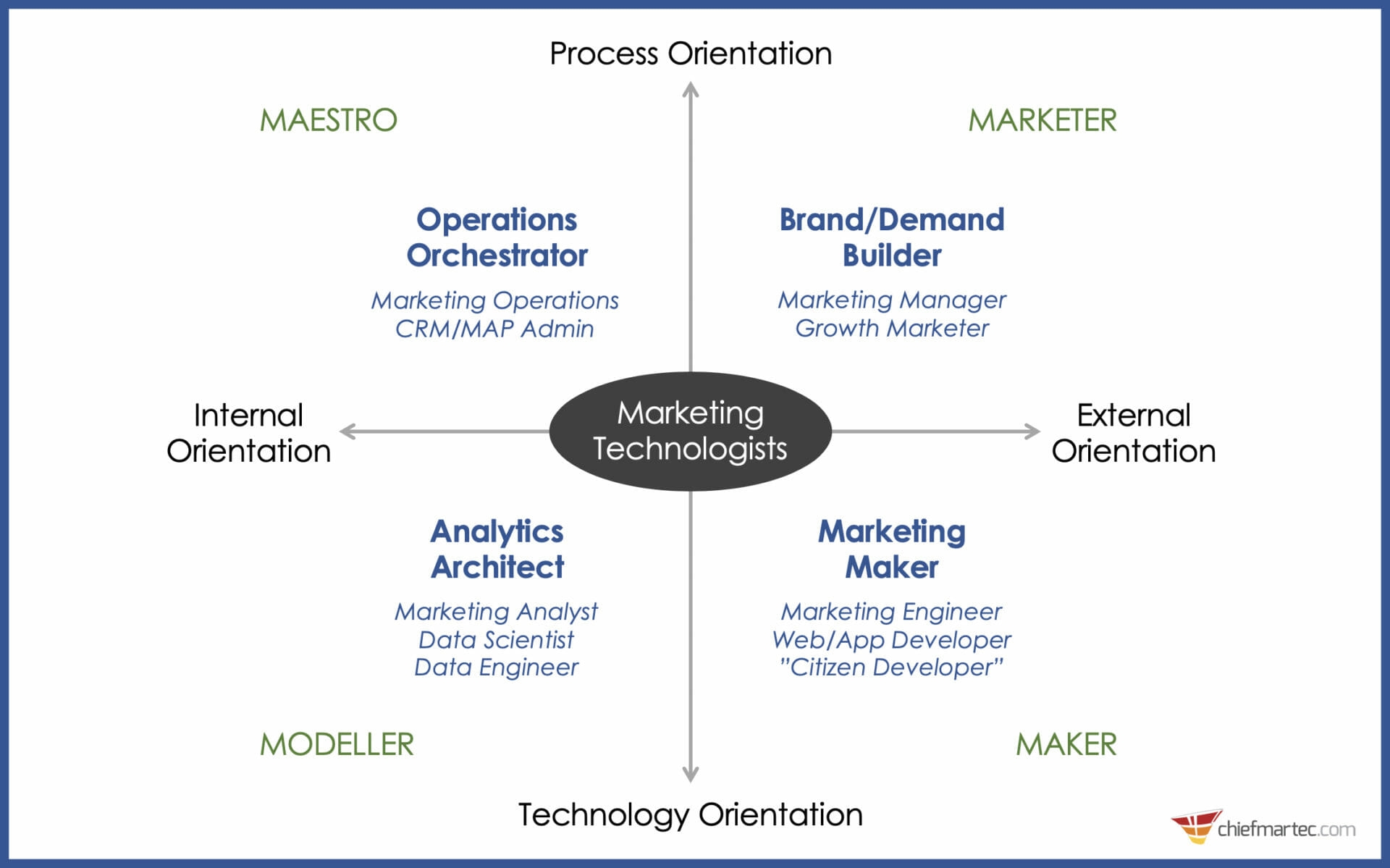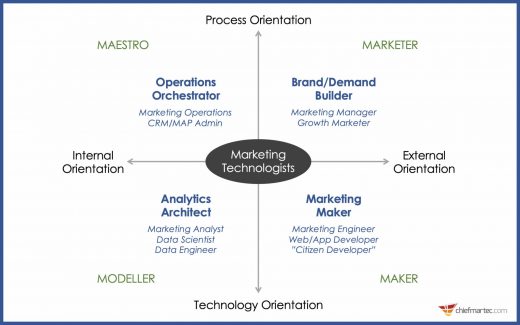Here’s what the role of a martech orchestrator looks like
We all know martech is complex and evolving so we need orchestrators to provide clarity about how operations are managed.
When Scott Brinker explored the evolving categorization of martech roles I was glad to see it as I’ve seen some confusion in the field about our work. How can we more precisely communicate what we do?
Despite the growth of the martech sector over the last decade, “marketing technology” is still sometimes vague when it comes to job titles and descriptions. For instance, my current job title is Marketing Technology Manager, but it seems like an imperfect fit as there are a wide variety of skills and duties associated with the specialty.

In my case, I best fit in the maestro quadrant of Brinker’s archetypes as an orchestrator because my job is to manage our martech stack. Thus, I focus more internally and on processes. However, a lot of “marketing technology” and “marketing operations” jobs are more focused on analytics and marketing automation. Therefore, it is not inconceivable that people with the same job title at different organizations can have vastly different responsibilities. That’s why it’s exciting to see Brinker try to provide more precise ways for us to describe what we do within the broader martech specialty.
So, perhaps instead of having Marketing Technology Manager as a job title, something like Marketing Technology Orchestrator would provide better clarity. Further, job titles aren’t always under the strict control of an organization or HR. Depending upon the context, multiple job title variants are applicable. One doesn’t always have to state that they’re a Marketing Technology Manager as sometimes Marketing Manager is more appropriate.
Regardless of a position’s job title, using Brinker’s terms like orchestrator, builder, architect and maker in job descriptions can help job candidates better understand a position while generalists like recruiters and career counselors can get a high-level idea without having to get into the nitty-gritty.
Given all of this, I want to focus on orchestrators in the maestro quadrant, which I’m best able to address.
What functions could an orchestrator perform? First, a significant part of such a job should devote time to maintaining documentation about each component of a stack, and this requires more than one would think. It isn’t just a one-time process of gathering and codifying the information. This requires continual checks with various teams to stay up to date on contract dates, costs, users, alignment with evolving strategic priorities, overall performance, etc. This means that martech practitioners need to remain up to speed on what’s happening throughout their departments. Just as it’s not easy to stay abreast of all developments within the martech specialty, other types of marketing specialists face similar challenges.
Another big part of an orchestrator’s life is helping evaluate potential martech purchases, renewals and sunsetting. We work with their marketing counterparts as well as coordinate their evaluations with IT, procurement and legal. This means that orchestrators must slow down (hopefully not!) help marketers understand the larger technical picture of our stack. Maestros can help other marketers and stakeholders think through questions like:
- How could or does a service or platform fit in with an existing stack as well as the core non-marketing enterprise systems?
- What does “better” mean (price, value, ease of use, ease of integration, possible customization, etc.) when comparing different products?
- Can one team live with an existing stack component even though it doesn’t meet 100% of their needs?
- Does it make sense to purposefully introduce overlaps in the stack?
- What is the best flow of information in and out of a system?
- If multiple systems send out emails, can the organization maintain CAN-SPAM compliance across the systems by opting someone out of emails from all of the systems?
There are a lot of questions, and marketing colleagues of all stripes specialize in other areas that are just as complex and evolving as martech. Thus, orchestrators need to help them think about these things.
In the other quadrants, maestros like me can perform other functions as well. For instance, they can do some technology-oriented tasks like acting as a business analyst to help others define what they know as well as what they don’t know if they’re not that technical (maker). Sometimes they could work with analytics team members to help interpret and define metrics and KPIs for initiatives (modeler). Then there are times they can adjust configurations of a platform or system (modeler). Externally, at times, they can help envision to better harness a stack component for a campaign (marketer). We all wear multiple hats.
I’m grateful that there’s an effort to better define martech roles. It will help us better communicate what we do, what each individual is interested in, and continue on our martech career paths with more clarity and control.
Opinions expressed in this article are those of the guest author and not necessarily Marketing Land. Staff authors are listed here.
Marketing Land – Internet Marketing News, Strategies & Tips
(9)



